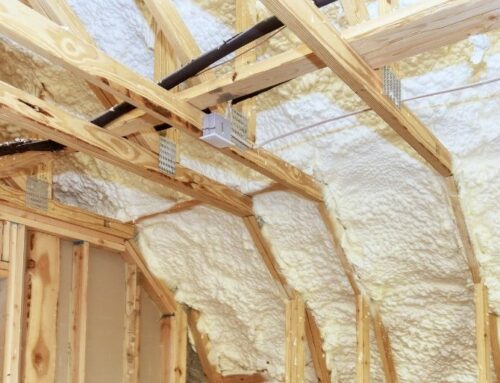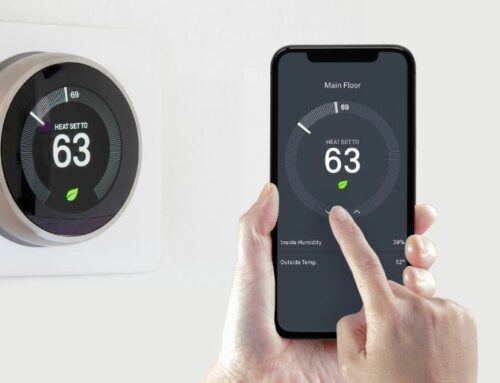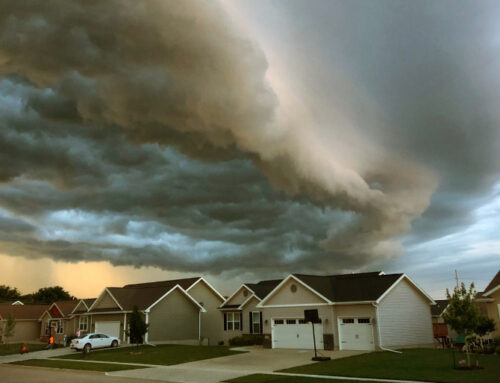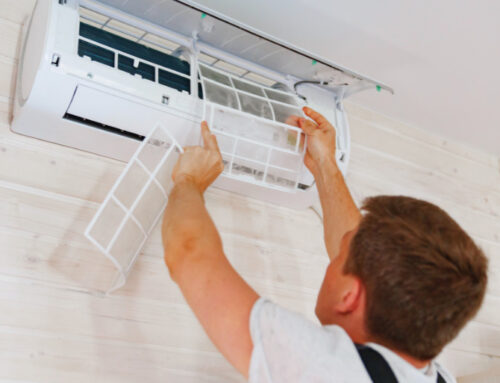What are Green HVAC Systems?
Green HVAC systems are more than just advanced climate solutions; they’re a pivotal shift towards sustainable living. Common in homes today, these systems redefine energy efficiency by using up to 50% less energy than traditional HVAC units.
What does it mean for a system to be “green”? Simply put, it operates with significantly reduced energy and fuel consumption, not only lightening your carbon footprint but also easing your energy expenses.
These systems don’t just cool or heat your space—they transform it. By embracing technologies that minimize environmental impact, you invest in both your home’s comfort and its future value. Opting for a green HVAC system isn’t merely a technical upgrade; it’s a conscious choice towards a more sustainable, cost-effective lifestyle.
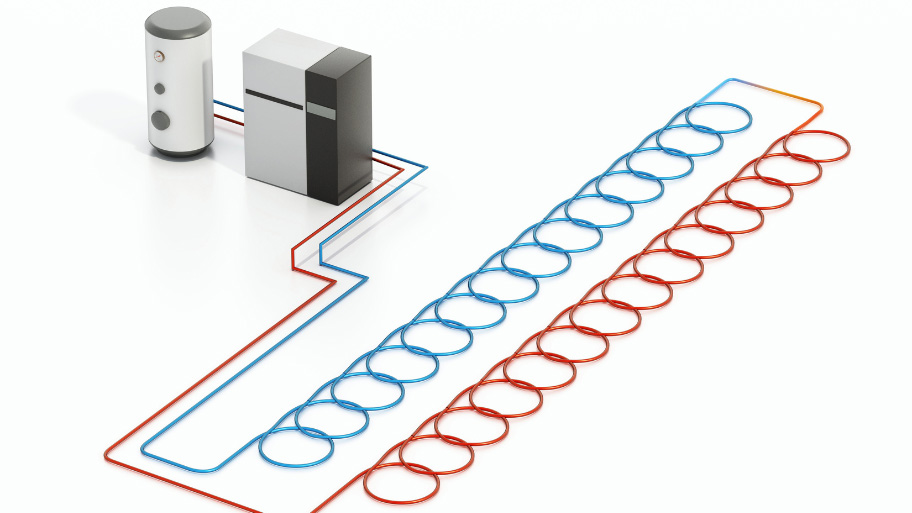
Types of Eco-Friendly HVAC Solutions
Explore the various eco-friendly HVAC systems designed to reduce environmental impact and increase efficiency.
1. Air Source Heat Pumps (ASHPs)
Air Source Heat Pumps are an innovative solution for managing home temperatures year-round. They work by extracting heat from the outside air, which can be used to warm your home during cold weather.
These systems are known for their energy efficiency, typically using only about half the electricity of traditional heating systems, which helps reduce both energy bills and environmental impact. Additionally, their relatively straightforward installation process makes them a convenient option for many homeowners seeking to upgrade their HVAC systems.
2. Ground Source (Geothermal) Heat Pumps
Geothermal heat pumps, also called ground source heat pumps, use the earth’s steady underground temperatures to effectively manage indoor climates.
These systems operate by circulating a liquid through a network of pipes buried in the ground, tapping into the consistent thermal energy available below the surface.
Although the installation costs can be high initially, the long-term benefits include significant energy savings and reduced environmental impact. These systems are highly efficient, offering a sustainable and economical solution for heating and cooling over the long term.
3. Ice-Powered Air Conditioning Systems
Ice-powered air conditioning introduces an innovative approach to eco-friendly cooling. This system generates ice in large tanks during off-peak hours overnight.
Throughout the day, this ice assists in cooling the air circulated by the HVAC system, greatly minimizing energy use during peak times.
This effective management of energy consumption not only lowers costs but also eases the load on the electrical grid during times of high demand, presenting a dual benefit in environmental and economic terms.
4. Dual-Fuel Systems: Combining Efficiency and Flexibility
Dual-fuel systems provide a smart solution for managing home temperatures by utilizing two energy sources, such as electricity and natural gas. These systems are designed to alternate between these sources to maximize efficiency based on the current weather conditions.
This capability ensures your home remains comfortable all year round, while optimizing energy usage. The adaptability and cost savings of dual-fuel systems make them an excellent choice for homeowners who prioritize both efficiency and environmental sustainability.
5. Solar-Powered HVAC Systems
Solar-powered HVAC systems utilize solar panels to capture and convert sunlight into electricity, which is then used to heat and cool homes. By tapping into renewable solar energy, these systems can significantly decrease reliance on traditional power sources, resulting in lower energy bills.
Many regions also offer financial incentives or rebates to support the adoption of solar technology, making these systems an appealing option for those looking to invest in sustainable home solutions.
6. Innovative Technologies: Hydronic and Wind-Powered Systems
In addition to the more common eco-friendly HVAC options, there are innovative technologies like hydronic and wind-powered systems.
Hydronic systems use water circulated through pipes to transfer heat, providing efficient and even heating, especially for radiant floor systems.
These can be integrated with other renewable energy sources for even greater efficiency. Wind-powered HVAC systems, on the other hand, use wind turbines to generate electricity for heating and cooling.
These systems are particularly useful in areas with consistent wind patterns and offer a unique way to harness renewable energy to reduce environmental impact and energy costs.
Benefits of Investing in Green HVAC Technology
Investing in green HVAC technology offers numerous advantages, boosting both your home’s efficiency and sustainability.
Energy and Cost Savings:
Green HVAC systems are engineered to cut costs and conserve energy:
Rebates and Incentives for Green Solutions:
Various financial incentives are available to help you:
Long-Term Environmental Impact:
These HVAC systems help protect the environment for the future:
Enhanced Indoor Air Quality:
Improve the air you breathe:
Comparing Energy Consumption: Traditional vs. Green HVAC Systems
Choosing the right HVAC system is crucial for energy efficiency and cost savings. Let’s explore how traditional and green HVAC systems differ in energy consumption and overall performance.
Design and Efficiency:
Cost Over Time:
Energy Sources:
Technology Integration:
Durability and Maintenance:
By transitioning to green HVAC systems, you can achieve lower energy bills, reduced environmental impact, and a more sustainable home. These systems provide a smarter, more efficient way to heat and cool your living spaces, contributing to both financial savings and environmental protection.
Practical Steps to Enhance Your HVAC’s Eco-Friendliness
Boosting the eco-efficiency of your HVAC system can help reduce energy expenses and minimize your environmental impact. Here are some practical steps to improve your system’s performance.
Routine Maintenance Tips
Maintaining your HVAC system’s efficiency involves regular upkeep:
Upgrades That Increase Efficiency
Boost your HVAC system’s performance with these enhancements:
When to Consider a Full System Upgrade
Upgrading your entire HVAC system can sometimes be the best way to boost efficiency:
By following these steps, you can enhance your HVAC system’s eco-friendliness, lower your energy consumption, and contribute to a more sustainable home.
How to Choose the Right Eco-Friendly HVAC System for Your Home
Choosing the best eco-friendly HVAC system for your home requires evaluating several important factors. Here’s what you should consider:
Home Size and Layout
Choosing the right HVAC system depends greatly on your home’s dimensions and design:
Climate Considerations
The effectiveness of HVAC systems can vary depending on your local climate:
Budget Constraints
Your budget will influence the type of system you can afford:
Energy Efficiency Ratings
It’s important to consider the energy efficiency ratings when choosing an HVAC system:
Professional Consultation
Getting advice from HVAC experts can be incredibly beneficial:
Taking these factors into account will help you select an eco-friendly HVAC system that suits your home and supports a sustainable lifestyle.
Find Your Sustainable HVAC Solution Today!
For residents in Ankeny, IA, and surrounding areas, we at Bryant Iowa Heating & Cooling specialize in providing eco-friendly HVAC solutions. Our range of green HVAC systems includes geothermal heat pumps, which convert natural energy from your backyard into efficient heating and cooling for your home.
Ready to upgrade to a more sustainable HVAC system? Contact us today to explore our range of eco-friendly solutions.

About the Author
For over 30 years, DuWayne McDaniel has been the trusted name behind Bryant Iowa Heating and Cooling in Ankeny, IA. With a Masters in HVAC and Hydronics, NATE certification, and EPA licensing, DuWayne brings unparalleled expertise to residential and commercial HVAC services. His commitment to 100% customer satisfaction has earned him the BBB Torch Award and made Bryant Iowa a Bryant Factory Authorized Dealer. DuWayne’s deep understanding of HVAC needs ensures year-round comfort for homes and businesses alike.

